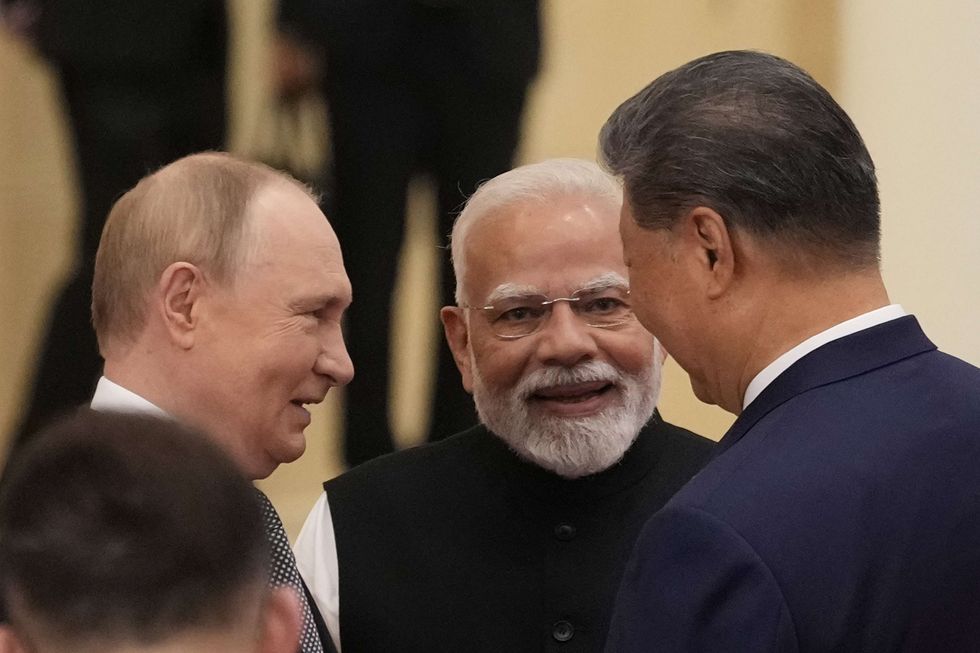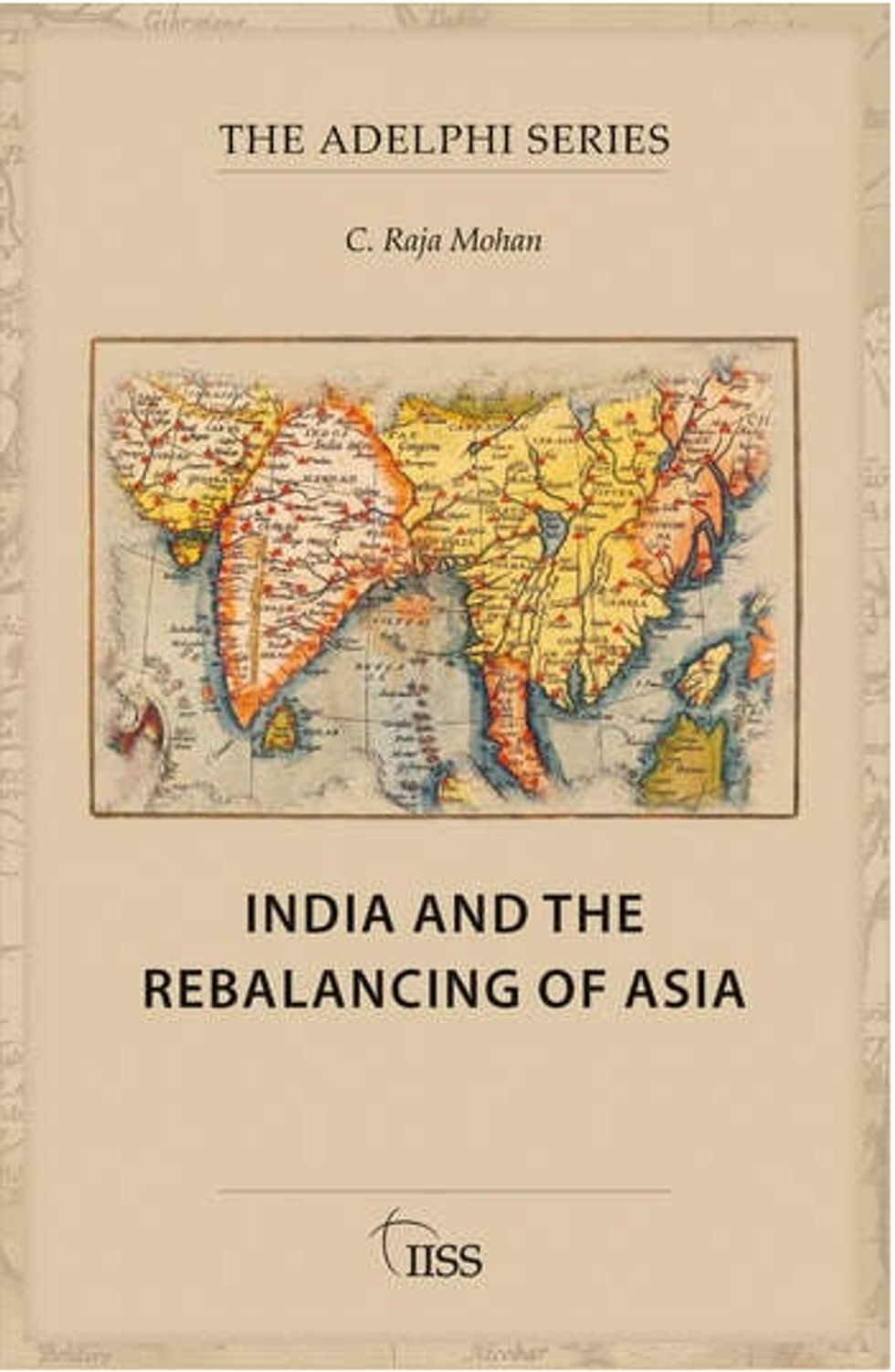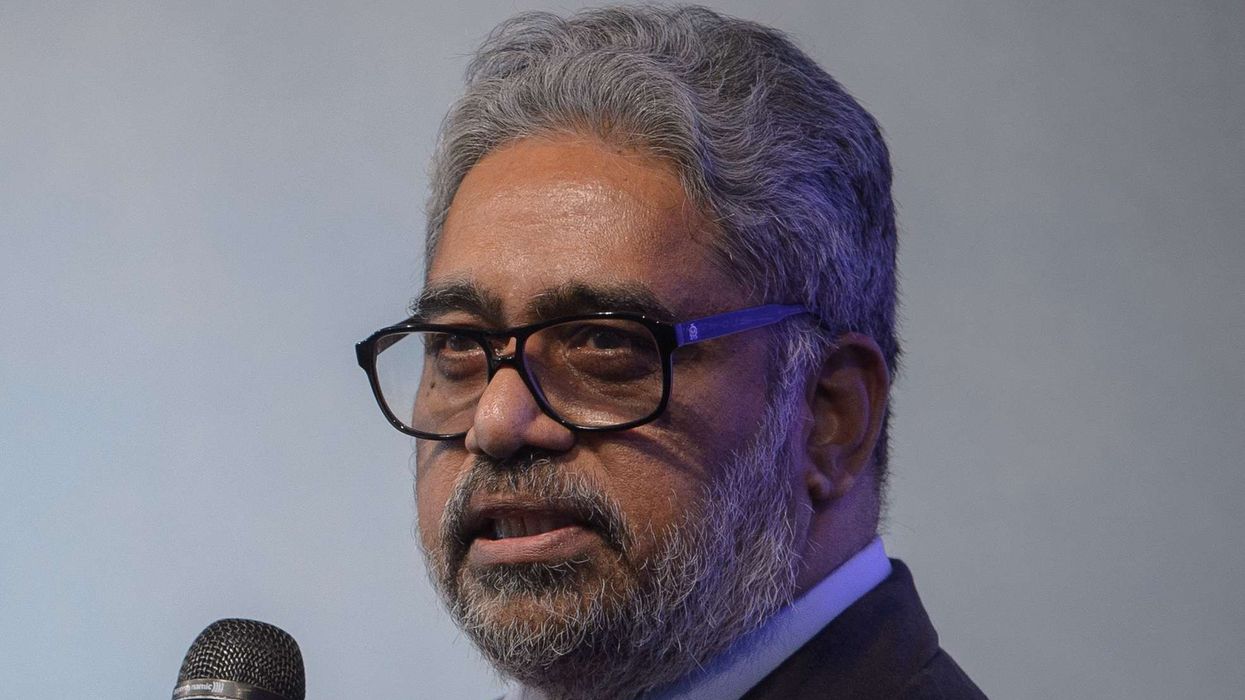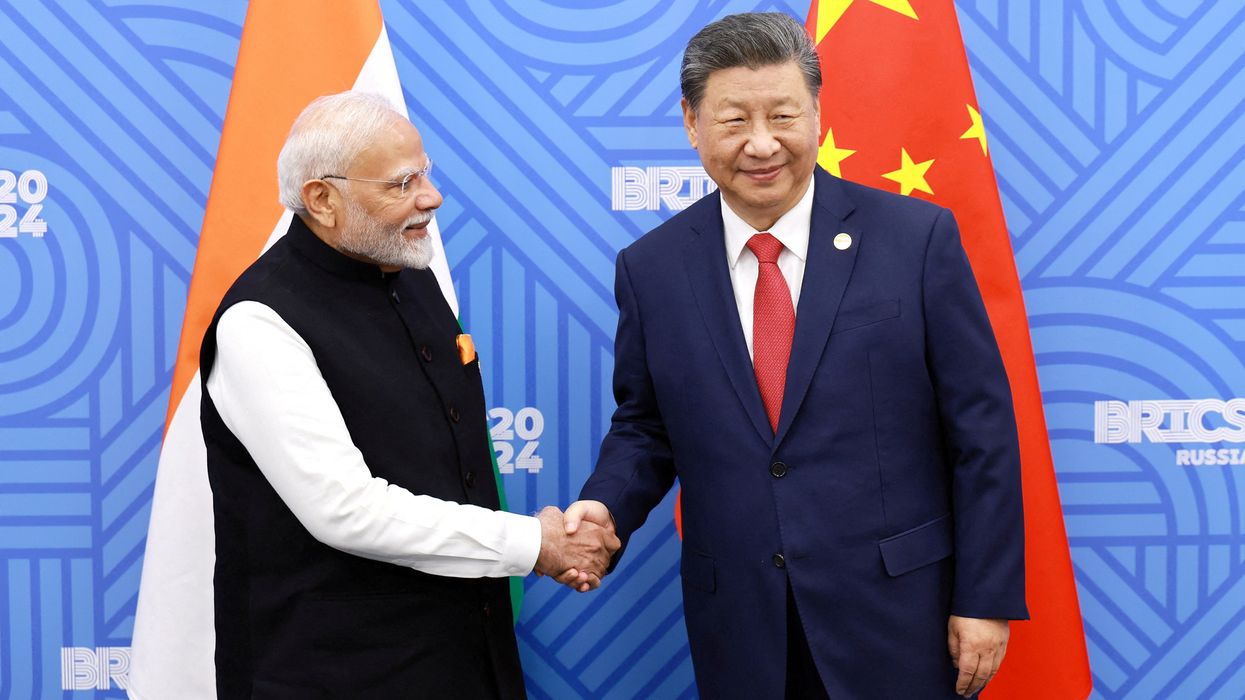TENSIONS with Pakistan, fluctuating ties with Bangladesh, and growing Chinese influence in Nepal and Sri Lanka have complicated India’s neighbourhood policy, a top foreign policy and security expert has said.
C Raja Mohan, distinguished professor at the Motwani Jodeja Institute for American Studies at OP Jindal Global University, has a new book out, called India and the Rebalancing of Asia.
At an online event to publicise the launch of the book, Raja Mohan said India is stepping back into the centre of Asian geopolitics after decades of strategic restraint.
He also described how India’s engagement with the US, Japan, Australia and Europe has moved from symbolism to one of substance. Raja Mohan said, “After independence, India withdrew from regional security politics, focusing on global issues and non-alignment. But the past decade has seen a reversal. India is now back in the Asian balance of power. The very concept of the ‘Indo-Pacific’ reflects that, putting the ‘Indo’ into the ‘Pacific.’”
The idea, he explained, has deep historical roots: “The British once viewed the Indian and Pacific Oceans as interconnected realms. Now, after decades of separation, those spaces are merging again.”

While India once aspired to build a “post-Western order” alongside China, those dreams have long since faded, according to the expert.
“Contradictions between India and China have sharpened,” he said, citing territorial disputes, a $100 billion (£75bn) trade deficit, and China’s growing influence among India’s neighbours.
By contrast, India’s ties with the US and Europe have strengthened.
“Where once India shunned security cooperation with Washington, it is now deeply engaged,” he said. Yet he emphasised that India remains an independent actor, “not a traditional ally like Japan or Australia.”
His comments were made during the Adelphi series, hosted by the International Institute for Strategic Studies (IISS) last month. According to the expert, who is also a visiting research professor at the National University of Singapore, the return of India to regional security politics marks a significant change in its foreign policy since independence. Popular discussions about the “rise of Asia” tend to oversimplify what Raja Mohan explained was a deeply uneven transformation. “It’s more accurate to say Asia as a whole is rising,” he said, adding, “but not evenly. China has risen much faster than the rest.”
This imbalance has created internal contradictions within Asia, according to the academic. “China’s sense of entitlement to regional dominance and its territorial claims have provoked reactions from other Asian countries,” he said.
While China’s economic ascent, once “a marriage of Western capital and Chinese labour”, that relationship has strained over the past 15 years as the Asian country grew into a global military and economic powerhouse, according to Raja Mohan.
And the US, which previously nurtured China’s growth, now seeks to restore balance in Asia, shifting from a policy of engagement to one of cautious competition, he said.
Dwelling on India’s rise, he said, “The question is not whether India can match China alone, but whether it can help build coalitions that limit unilateralism. History shows weaker states can play crucial balancing roles, as China once did against the Soviet Union.”
He explored how the US-China and India-China dynamics might evolve, particularly under US president Donald Trump.
“Some believe the US is retrenching to focus on Asia, others think Trump might seek a grand bargain with China,” Raja Mohan said. “Much depends on how Washington manages its ties with Russia and its global posture.”
He also described how India’s engagement with the US, Japan, Australia and Europe has moved from symbolism to one of substance. Raja Mohan said, “After independence, India withdrew from regional security politics, focusing on global issues and non-alignment. But the past decade has seen a reversal. India is now back in the Asian balance of power. The very concept of the ‘Indo-Pacific’ reflects that, putting the ‘Indo’ into the ‘Pacific.’”
The idea, he explained, has deep historical roots: “The British once viewed the Indian and Pacific Oceans as interconnected realms. Now, after decades of separation, those spaces are merging again.”
While India once aspired to build a “post-Western order” alongside China, those dreams have long since faded, according to the expert.

“Contradictions between India and China have sharpened,” he said, citing territorial disputes, a $100 billion (£75bn) trade deficit, and China’s growing influence among India’s neighbours.
By contrast, India’s ties with the US and Europe have strengthened.
“Where once India shunned security cooperation with Washington, it is now deeply engaged,” he said. Yet he emphasised that India remains an independent actor, “not a traditional ally like Japan or Australia.”
His comments were made during the Adelphi series, hosted by the International Institute for Strategic Studies (IISS) last month. According to the expert, who is also a visiting research professor at the National University of Singapore, the return of India to regional security politics marks a significant change in its foreign policy since independence. Popular discussions about the “rise of Asia” tend to oversimplify what Raja Mohan explained was a deeply uneven transformation. “It’s more accurate to say Asia as a whole is rising,” he said, adding, “but not evenly. China has risen much faster than the rest.”
This imbalance has created internal contradictions within Asia, according to the academic. “China’s sense of entitlement to regional dominance and its territorial claims have provoked reactions from other Asian countries,” he said.
While China’s economic ascent, once “a marriage of Western capital and Chinese labour”, that relationship has strained over the past 15 years as the Asian country grew into a global military and economic powerhouse, according to Raja Mohan.
And the US, which previously nurtured China’s growth, now seeks to restore balance in Asia, shifting from a policy of engagement to one of cautious competition, he said.
Dwelling on India’s rise, he said, “The question is not whether India can match China alone, but whether it can help build coalitions that limit unilateralism. History shows weaker states can play crucial balancing roles, as China once did against the Soviet Union.”
He explored how the US-China and India-China dynamics might evolve, particularly under US president Donald Trump.
“Some believe the US is retrenching to focus on Asia, others think Trump might seek a grand bargain with China,” Raja Mohan said. “Much depends on how Washington manages its ties with Russia and its global posture.”
China, he noted, has already toned down its aggressive “wolf warrior” diplomacy, realising that assertiveness has backfired. Yet the underlying structural contradictions between China and both the US and India “are unlikely to disappear.”
Asked about India’s balancing act between the US and Russia, especially after Moscow’s invasion of Ukraine, the expert was pragmatic.
“India has steadily moved closer to the US and the West, but Trump’s trade-first approach has caused turbulence,” Raja Mohan said.
He cited the threats of high tariffs on Indian imports and resentment over trade imbalances with Washington DC.

On Russia, Raja Mohan’s view was that the relationship has been “in slow decline since the 1990s.”
While India’s GDP now outpaces Russia’s, it continues to engage Moscow for practical reasons. “India’s oil purchases from Russia rose from two per cent to forty per cent after 2022. That’s pragmatism, not alignment,” Raja Mohan said.
He added that prime minister Narendra Modi’s recent handshakes with China’s president Xi Jinping and Russia’s president Vladimir Putin at the Shanghai Co-operation Organization (SCO) summit in China were “signals, reminders to the West that India has options.”
Raja Mohan said India was at the cusp of a historic transformation. “India once provided security across Asia - in both world wars, millions of Indian soldiers fought overseas. That history was forgotten when India withdrew from global security,” he said.
“Now we are reclaiming that role. Ideally, the partnership with the US is the best. But if not, India and other Asian powers will have to shoulder the burden themselves.”
“Japan, Korea, India, Australia - all will have to do more on their own,” he said. “We’ll need to pull up our own bootstraps.”
Dr Benjamin Rhode, senior fellow at IISS, chaired the session.
aggressive “wolf warrior” diplomacy, realising that assertiveness has backfired. Yet the underlying structural contradictions between China and both the US and India “are unlikely to disappear.”
Asked about India’s balancing act between the US and Russia, especially after Moscow’s invasion of Ukraine, the expert was pragmatic.
“India has steadily moved closer to the US and the West, but Trump’s trade-first approach has caused turbulence,” Raja Mohan said.
He cited the threats of high tariffs on Indian imports and resentment over trade imbalances with Washington DC.
On Russia, Raja Mohan’s view was that the relationship has been “in slow decline since the 1990s.”
While India’s GDP now outpaces Russia’s, it continues to engage Moscow for practical reasons. “India’s oil purchases from Russia rose from two per cent to forty per cent after 2022. That’s pragmatism, not alignment,” Raja Mohan said.
He added that prime minister Narendra Modi’s recent handshakes with China’s president Xi Jinping and Russia’s president Vladimir Putin at the Shanghai Co-operation Organization (SCO) summit in China were “signals, reminders to the West that India has options.”
Raja Mohan said India was at the cusp of a historic transformation. “India once provided security across Asia - in both world wars, millions of Indian soldiers fought overseas. That history was forgotten when India withdrew from global security,” he said.
“Now we are reclaiming that role. Ideally, the partnership with the US is the best. But if not, India and other Asian powers will have to shoulder the burden themselves.”
“Japan, Korea, India, Australia - all will have to do more on their own,” he said. “We’ll need to pull up our own bootstraps.”
Dr Benjamin Rhode, senior fellow at IISS, chaired the session.





